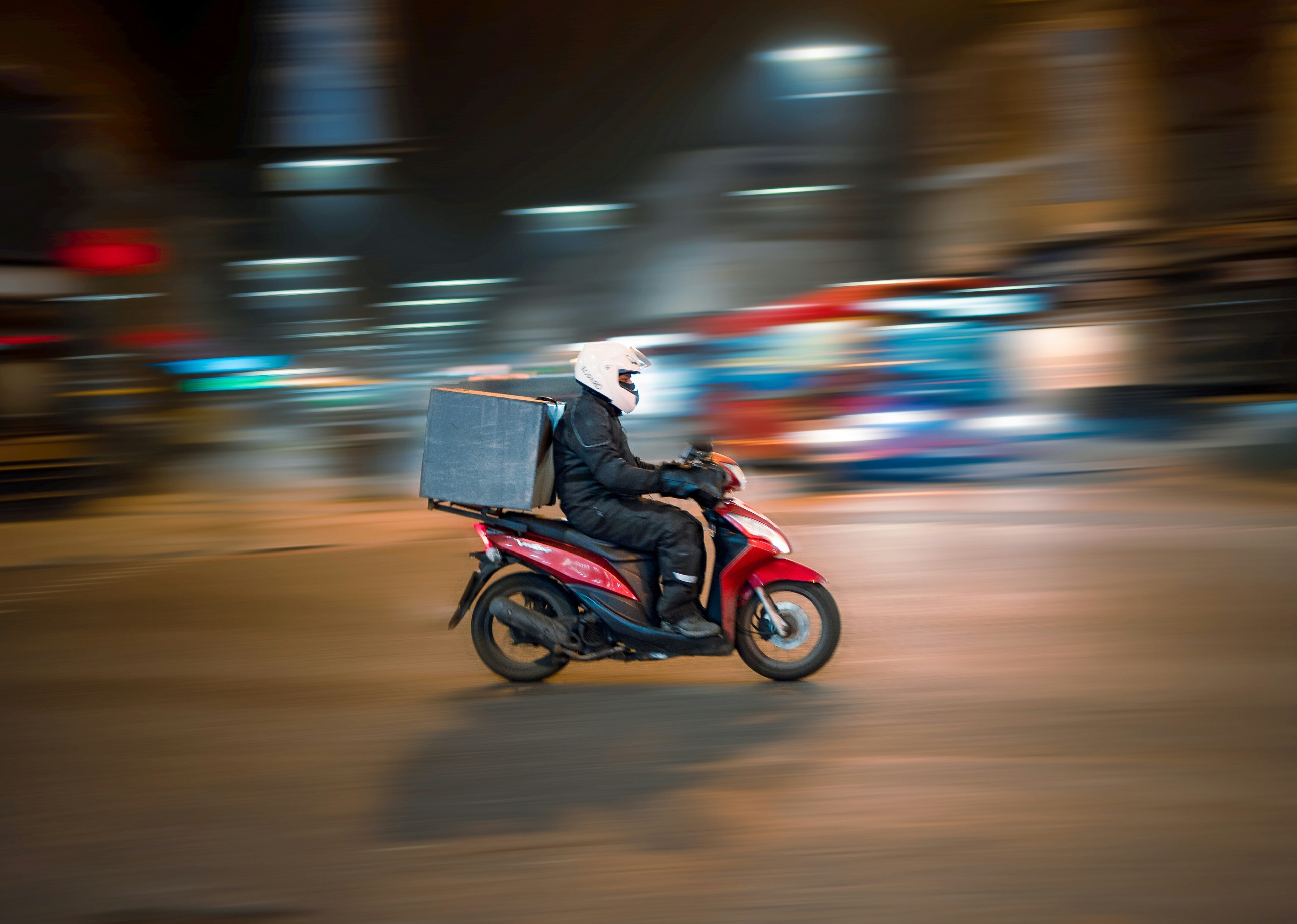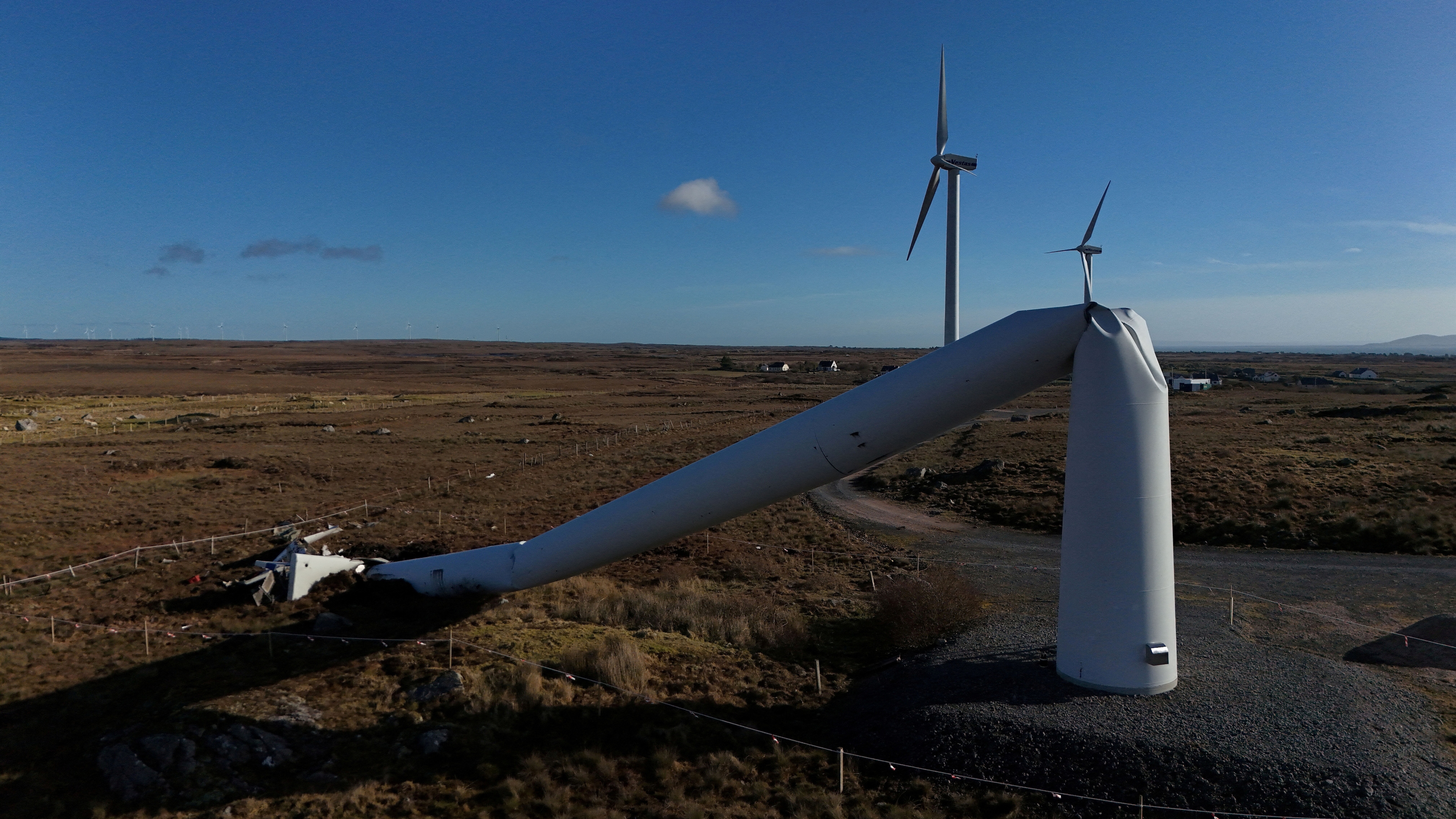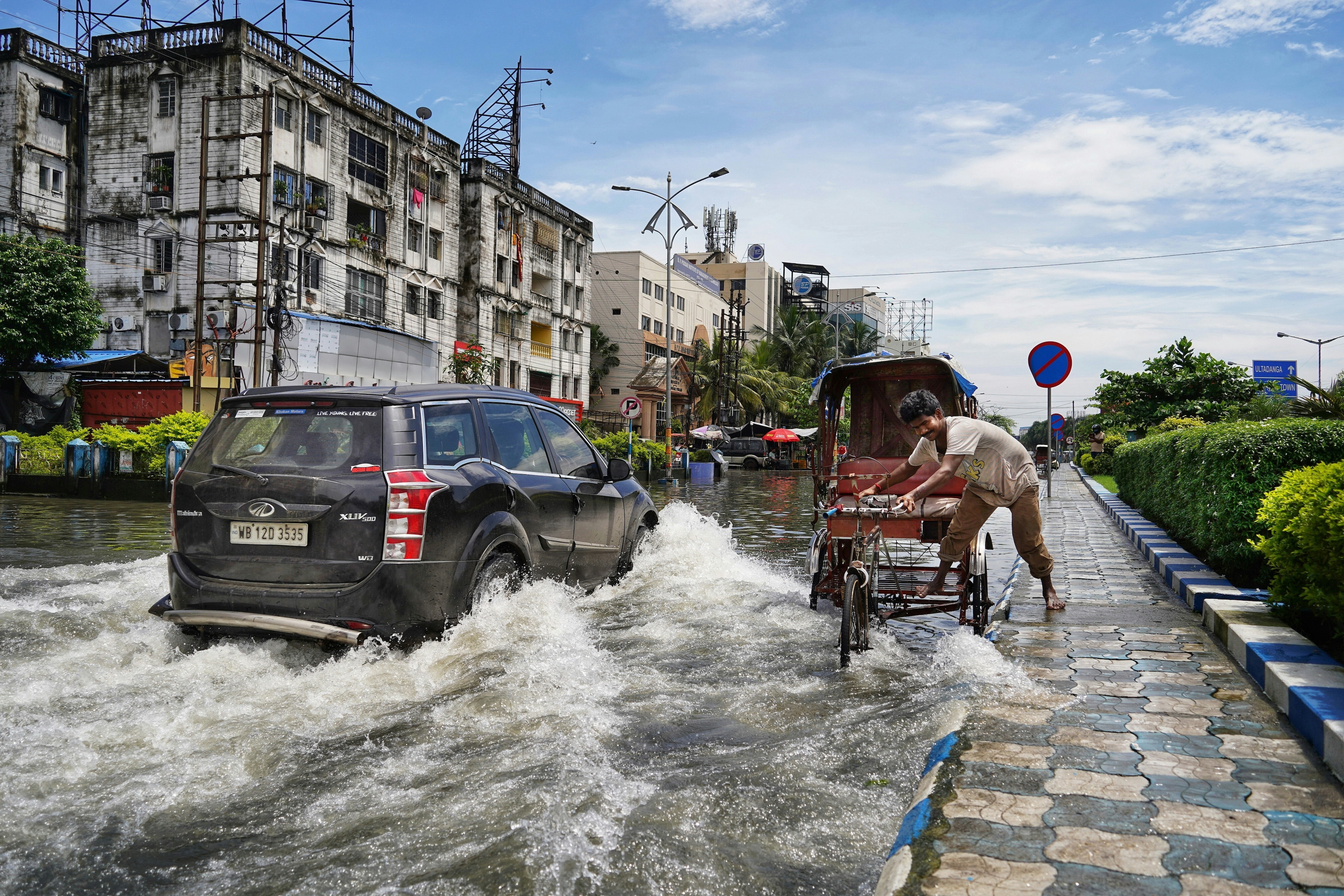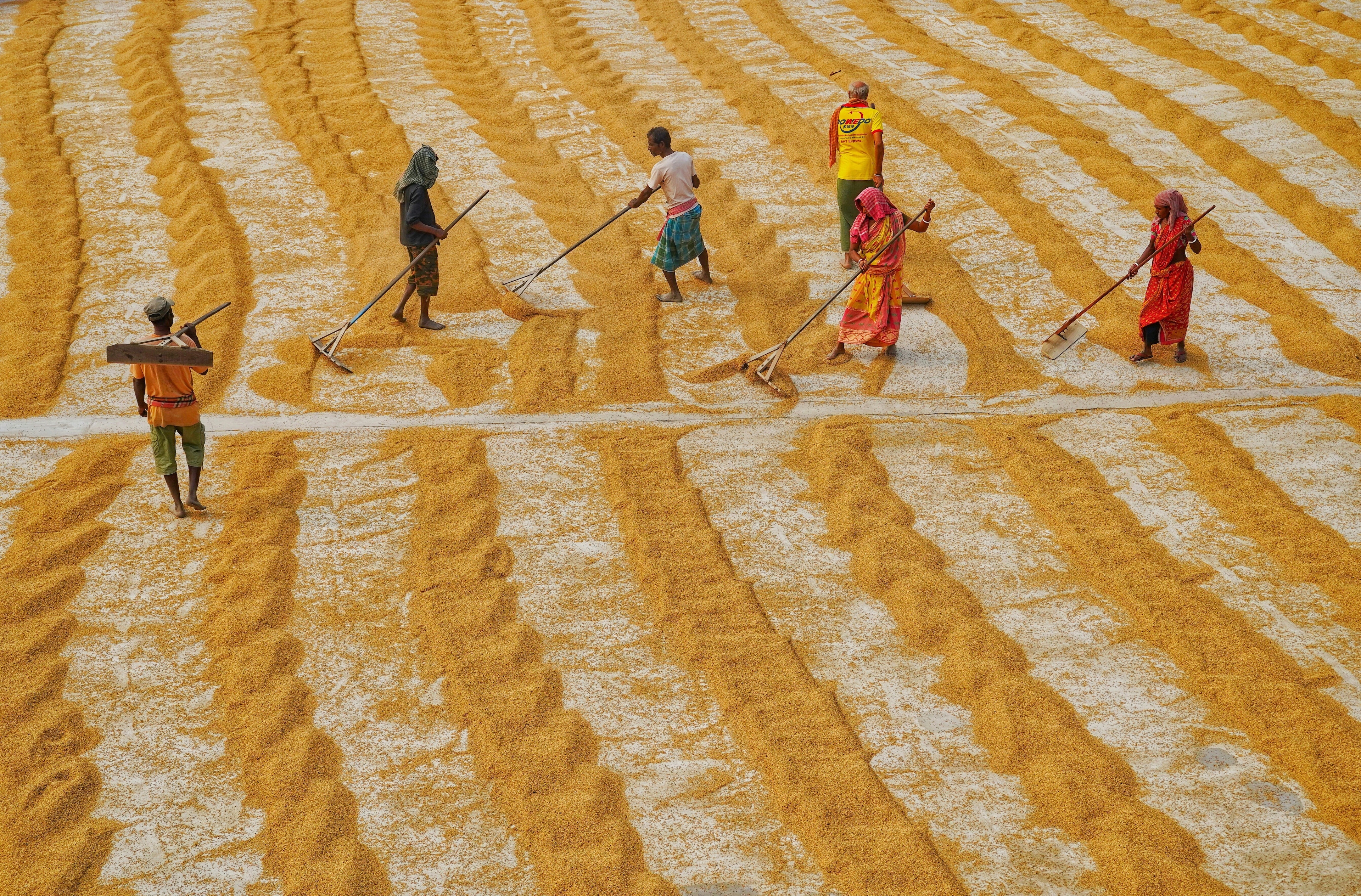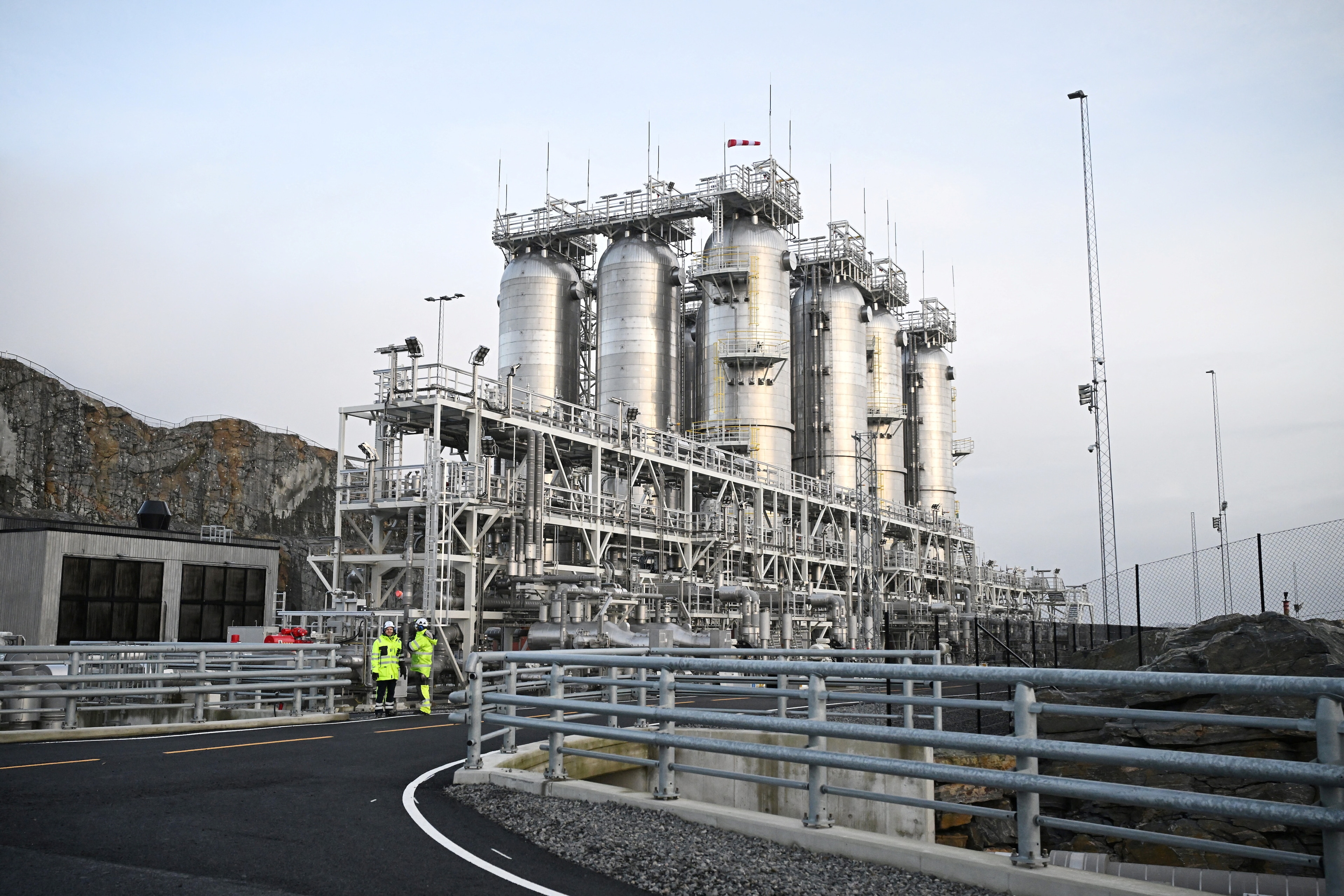Cities are under strain as climate change drives a new wave of migration

Cyclones are devastating fishing communities, leading to economic migration.
Image: Unsplash/Duangphorn Wiriya
Stay up to date:
Migration
- Extreme weather fuelled by climate change is driving millions of people from their homes, with many migrating to cities.
- This is placing an increasing strain on city budgets, as councils struggle to house, feed and care for new arrivals.
- Climate change could prompt 216 million people to move within their countries by mid-century, according to a World Bank estimate.
- More funding is needed to alleviate the situation, from relocating people in flood-prone areas, to bolstering city response funds.
When Mozambican fishmonger Manuel Machava hears the fishermen have landed a bumper catch of mackerel, crabs or shrimp, he has mixed feelings - pleased for their good fortune, but worried about how he can sell their haul before it perishes.
More than three years since Cyclone Idai devastated the fish market in the city of Beira, Machava and fellow stallholders are still doing business in makeshift plastic shelters that are poorly equipped and provide little respite from the hot sun.
"We're losing up to two tonnes of fresh produce per day," Machava, 52, coordinator for Beira's fishing community, said from inside the Praia Nova fish market, which is now slated for repair thanks to a grant aimed at helping cities address climate-driven displacement.
Beira's fishing community - a pillar of the local economy - was hit hard by Idai, which killed hundreds of people across southern Africa, displacing thousands more and causing millions of dollars in damage in poor countries including Mozambique.
Idai has been followed by a further three tropical cyclones to date.
Today, officials in the Indian Ocean city are planning to use the new funding to try to relocate hundreds of fishing families at risk of future flooding - encouraging them to move to safer ground with promises of new equipment, refrigerators and road access.
Their efforts reflect increasing global concern over how extreme weather fuelled by climate change - storms, droughts and flooding - is driving millions of people from their homes.

At a U.N. meeting last month, governments came together for the first time to review a 2018 global migration agreement, with city mayors from around the world gathering on the sidelines to discuss their experiences of climate-related displacement.
About 2,000 people arrive in Bangladesh's capital every day, driven from their homes by rising sea levels and farmland flooding, said Dhaka North Mayor Mohammad Atiqul Islam, one of nearly a dozen mayors who attended the forum.
What’s the World Economic Forum doing about climate change?
The influx creates an opportunity for the city's future economic growth, but also poses numerous short-term challenges, he said.
"(It) creates extra pressure on our environment and ability to deliver services ... Where are they going to stay?" he told the Thomson Reuters Foundation by phone.
Islam's administration receives support from the Bangladeshi government, but he said cities like his lack direct access to global climate funding, especially for adaptation measures, and need a bigger say on how to respond to sudden population shifts.
Informal settlements
Climate change could prompt 216 million people to move within their countries by mid-century, including 86 million in sub-Saharan Africa alone, according to a World Bank estimate from last year.
Yet while many national governments continue to see climate migration as a problem of the future, according to an analysis by the Center for Global Development, a U.S.-based think-tank, officials in cities worldwide say it is already wreaking havoc.
"This is reality," Freetown Mayor Yvonne Aki-Sawyerr said by phone. "Women who used to be farmers ... are (now) living in informal settlements trying to sell mangoes because they can no longer sustain their livelihoods."

Sierra Leone's capital has limited ability to respond, she said, being hamstrung in accessing financing and even on local regulation, with issues such as land use planning and building permits overseen by the national government.
"But when the floods happen, (local residents) look to the city council," said Aki-Sawyerr, who along with other mayors, presented such concerns to U.N. officials in New York.
Beira was one of five cities facing climate displacement to receive funding from the Mayors Migration Council (MMC), a mayor-led advisory organisation that met on the sidelines of last month's U.N. gathering.
Five more will be announced at the COP27 climate summit in November.
The coronavirus pandemic has highlighted the importance of local leaders in responding to the needs of migrants, including those forced to move by climate factors, said Colleen Thouez, a senior fellow at the New School in New York who has worked on such issues for years.
"We're no longer convincing (world leaders) of the importance of having mayors' voices – the U.N. is inviting them in and recognising their centrality as solution-bearers," she said.
COVID-19 emergency policies may also have swayed thinking on how to deal with sudden migrant influxes, Thouez said, citing as an example greater willingness to extend health and welfare access to people without the necessary documents.
Adaptation lessons
At the fish market in Beira, the orange sunset is visible through a gap where the roof once was. Some of the remaining metal rafters dangle precariously towards the ground, a reminder of the 2019 cyclone's devastation.

Some $200,000 from the MMC fund will now be used to repair the fish market and initially relocate 100 families living in flood-prone areas to less vulnerable fishing neighbourhoods in Beira, with the potential to relocate hundreds more.
Unlike other assistance, MMC gives funding directly to city governments to "implement projects of their own design", said Samer Saliba, head of practice at the organisation, noting that Beira Mayor Albano Carige had submitted the fish market project.
"His administration will receive and use the funds independently," Saliba added.
At his office in the city council buildings up the road from the market, Carige said he hoped life could soon finally return to normal for Beira's fishermen, fishmongers and their families.
He is also keen to share his city's climate adaptation lessons with other local government officials around the world, and make sure Beira is better placed to cope with future climate-related threats.
"Beira is a vulnerable city," Carige said.
"In the future I don't want to stress when we hear a disaster is coming. I want to feel that we're strong enough to adapt to climate change," he said.
Accept our marketing cookies to access this content.
These cookies are currently disabled in your browser.
Don't miss any update on this topic
Create a free account and access your personalized content collection with our latest publications and analyses.
License and Republishing
World Economic Forum articles may be republished in accordance with the Creative Commons Attribution-NonCommercial-NoDerivatives 4.0 International Public License, and in accordance with our Terms of Use.
The views expressed in this article are those of the author alone and not the World Economic Forum.
Forum Stories newsletter
Bringing you weekly curated insights and analysis on the global issues that matter.
More on Climate ActionSee all
Michael Fröbel and Stanislas Hillen
August 8, 2025
Elizabeth Henderson and Daniel Murphy
August 8, 2025
De Rui Wong and Keebum Kim
August 7, 2025
Aurora Matteini and Derek Baraldi
August 6, 2025
Tom Crowfoot
August 5, 2025
Sverre Alvik
August 5, 2025
